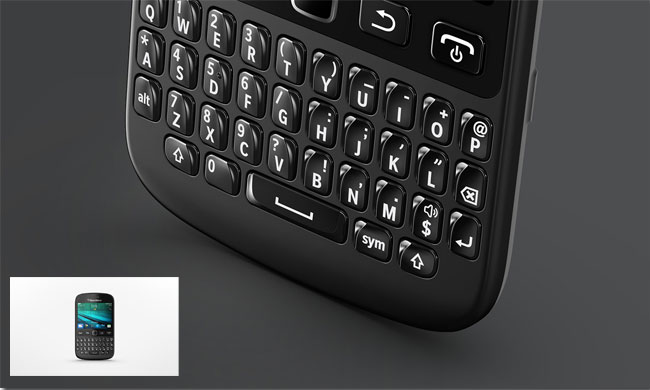BlackBerry Will Never Ditch The Keyboard, Why?

A new day is coming for the BlackBerry. It started earlier this year, with the release of the BlackBerry PlayBook tablet. Research In Motion turned away from its legacy operating system and went in a new direction, and by most reviews the change was a welcome one.
Now they’re ready to take the operating system to a new level. Starting in 2012 they’ll place the OS, dubbed BlackBerry 10, on their new line of smartphones.
The initial model, the BlackBerry London, looks a bit different than the typical flagship BlackBerry.
It has no physical keyboard. Will RIM be ready to ditch its most famous feature?
As we’ve learned in the days and weeks since we first saw the London, RIM plans to release multiple devices running BlackBerry 10. Inevitably, that means including a physical keyboard.
Whether this means a portrait slider device, such as the BlackBerry Torch, or a half-screen half-keyboard hybrid like the Bold — or even both — remains to be seen.
Rumors abound, though, and it seems certain that RIM will retain its keyboard. That will likely never change. Here are a few reasons why there will always be a BlackBerry with a keyboard.
1. Business users’ needs
While BlackBerry 10 will attempt to woo the consumer market, RIM knows they are still considered the best smartphone for business. The needs of business users have evolved in the past few years, and there is certainly a segment that wants modern, state of the art smartphones.
But there will always be a segment of the business market that absolutely needs the physical keyboard. It’s the only efficient way to message. Think about the implications. Business users tend to be rushed and constantly multitasking.
The faster they can dash off an email, the better. While many iPhone users note that they do not miss the physical keyboard, chances are they have little need to type a large volume of emails. They might also not require pinpoint accuracy. The physical keyboard provides both.
To put it another way: in the movie RV, do you think Robin Williams could have composed his entire presentation on an iPhone? I highly doubt it. The keyboard lends itself to speed and accuracy, and those will always be a focus for the business class.
2. Uniqueness
The new BlackBerry London might look a lot like the big smartphones on the market. That’s by design; people have voted with their wallets, and it seems that full touchscreen devices have won the day. It behooves RIM, than, to create a BlackBerry that resembles those popular devices.
The issue, though, is that the new BlackBerry have to go above and beyond what Android and iPhone currently offer in order to make an impact. One way they can do that is through the physical keyboard.
While slider devices might not be the most popular, they are still prominent on the market. There is definitely a market segment that prefers a physical keyboard.
There is also a segment of the market that would like a physical keyboard, but can’t stand the mechanics of the popular landscape sliders (count me among them). RIM brings something different to the table: a portrait slider that still has a workable keyboard.
Anyone who has used a BlackBerry Torch knows that it brings the best of both worlds. In fact, if the Torch had the software to go with the hardware, we’d likely be talking about it as one of the best selling devices this holiday season. But people are turned off by RIM’s software, and it’s not difficult to understand why.
By combining their new software initiative with the BlackBerry Torch portrait slider, they could capture a part of the market that years for a more functional physical keyboard.
3. More possibilities
While it’s a general point, it still makes a difference. By creating devices with physical keyboard, RIM creates more opportunities — for developers and users alike.
With a physical keyboard developers might get a bit more creative with how they design their apps. That is, they can use the entire screen and still rely on the keyboard for input and shortcuts.
This isn’t so with the iPhone and Android full-touch screen devices, in which the keyboard takes up half the screen.
This works well for RIM, because more than anything the company needs more possibilities. To reiterate, they’re going nowhere by matching the current features of the iPhone and Android.
Both of those brands are well-established, while RIM BlackBerry is trying to recapture its reputation. They need to go above and beyond. The physical keyboard opens up possibilities that just aren’t there with Android and iPhone. If they leverage it correctly, BlackBerry could return to glory.
It won’t be an easy road. It’s difficult, after all, for RIM to convince former BlackBerry users that they’re all better. Yet if they’re going to rise to the level of Android and iPhone they’ll have to do just that. Their physical keyboard might be part of the answer.
It’s of use to a big segment of their audience, it provides a unique selling proposition, and it allows for greater possibilities. Those are three excellent starting points. It should give users faith that the BlackBerry will reclaim its former status in 2012.
Joe Pawlikowski is the editor of BBGeeks, a site dedicated to helping BlackBerry users get the most out of their devices.

